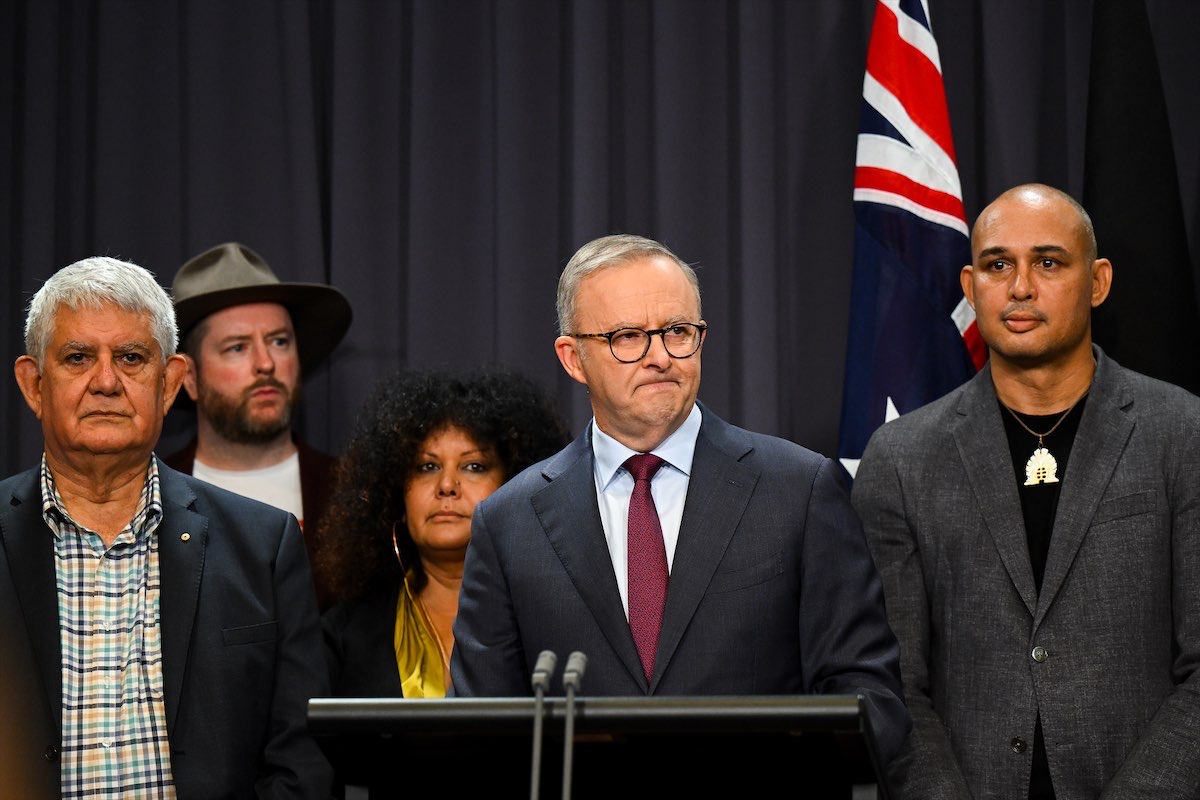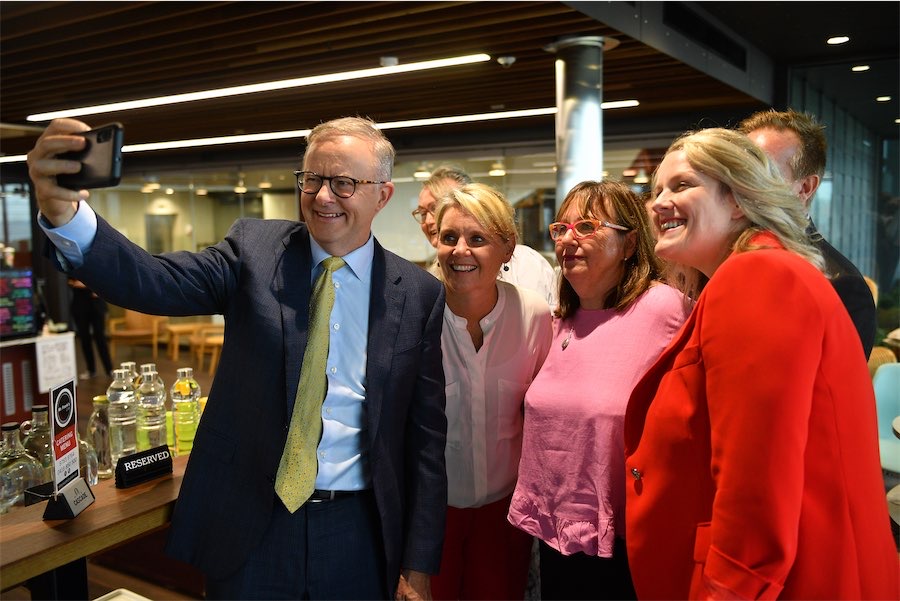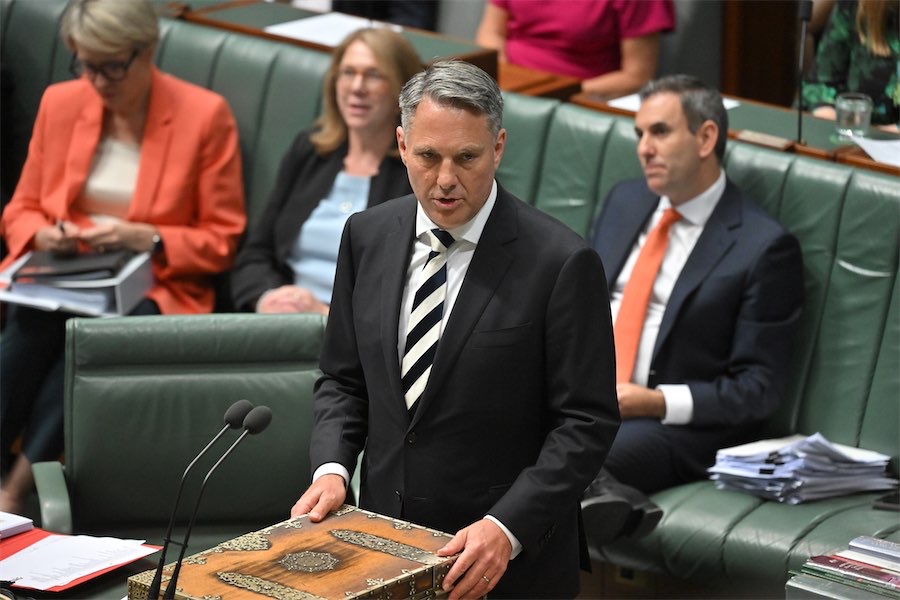
A ‘No’ vote in the Voice referendum would put a serious dent in Australia’s image abroad, writes MICHELLE GRATTAN.
AT the end of the emotional news conference in which he unveiled the wording for the Voice referendum, Anthony Albanese touched on a central reason why a “yes” result is vital.
Australia would be seen as a better nation by the rest of the world if the referendum succeeded, the PM said, adding “and our position in the world matters”.
It’s actually not so much a matter of enhancing our international reputation, as of not putting a serious dent in it.
Imagine the impression sent abroad if voters defeated a proposal for an Aboriginal and Torres Strait Islander body to advise the federal parliament and executive government on matters relating to indigenous people.
Any nuance about why the referendum (which to succeed must be carried in four states as well as nationally) had failed would be lost. It would just come across as Australians slapping the country’s indigenous people in the face.
This would be particularly bad for the Albanese government, which has recently announced the appointment of the inaugural ambassador for First Nations People, Justin Mohamed.
Among other things, Mohamed is to be responsible “for leading the government’s efforts to embed indigenous perspectives, experiences and interests” across the foreign affairs department and developing “a First Nations Foreign Policy Strategy”.
It would be an appalling start to his job if he had to explain the collapse of this high-profile referendum.
Mainly, discussion of the consequences of the referendum failing has centred on what that would mean locally.
For Albanese, who is investing a great deal of political capital in the issue, defeat would be a major blow. It also potentially could have knock-on effects for the government’s plans for a referendum on a republic in a second Labor term.
And a loss would be a massive setback for reconciliation, sparking disillusionment and anger among indigenous Australians.
But beyond these domestic implications, the impact on Australia’s international standing should be kept front of mind. This constitutes an argument for a “yes” vote, even by those who might think the Voice will not amount to much, or, alternatively, fear it will unleash a lawyers’ picnic.
We are so far down this referendum road that not to reach the destination would have very wide fallout.
But it will be rough going over the next few months. That was clear on Thursday despite the historic celebratory news conference that saw the prime minister flanked by an array of indigenous leaders, united in the referendum cause.
Conservative constitutional experts are critical of the wording the government has settled on, which varies only marginally from Albanese’s first draft outlined to last year’s Garma festival.
Objections go to the potential scope it would give the Voice in relation to advising executive government, and especially the public service.
Greg Craven, a member of the constitutional expert group that has been advising on the referendum, told 3AW: “The problem is executive government covers the whole of the decision-making of the Commonwealth government […] Now, if you get into a situation where, for example, the Voice hasn’t yet made a representation on some important view and the Commonwealth has not told the Voice and given it that chance, then legally it is entirely practicable for someone to take a challenge to a court to stop that action until the Voice has made a representation.”
Attorney-General Mark Dreyfus moved to strengthen the guard rail to prevent such a problem but the First Nations referendum working group – the power centre when it comes to negotiating with the government – bristled. Instead, the group came up with its own form of words, which the government accepted.
Peter Dutton has called for the government to release the advice the solicitor-general provided Dreyfus about that extra guard rail.
Other constitutional lawyers, such as Anne Twomey (who is also on the constitutional expert group), don’t see a problem, believing the slight tweak from the original that has been made is sufficient protection.
It’s a case of choose your expert. We would only know definitively who’s right if and when the legal processes played out after the Voice was in operation.
This legal issue in relation to executive government is the most serious question about the Voice, but it’s not the only one.
We know the parliament will be the final arbiter of the detail of the Voice, after a successful referendum. “Parliament” in practice means the Albanese government, advised by Indigenous people and possibly limited by what it can get through the Senate.
But the referendum working group has already set out some design principles, endorsed by the government. One says: “To ensure cultural legitimacy, the way that members of the Voice are chosen would suit the wishes of local communities”.
That might seem fine at first glance, but it does not provide any certainty of a democratic and inclusive local process, which might surprise some referendum voters.
While the argument among lawyers gives Dutton added grist for questions, it does not make any easier his fundamental dilemmas with this referendum, on which the Liberals have yet to declare a position.
Dutton has a split party, with the majority favouring a “no” vote but a vocal minority of moderates firmly on the “yes” side and ready to campaign for it.
Beyond that, Albanese is investing the referendum with a lot of emotion and also tying it to achieving results in “closing the gap”.
If Dutton opposes, he’ll find himself cast on the wrong side of history, whatever the referendum result. If the vote is carried, his opposition would be condemned. If the referendum were lost, he’d receive a lot of blame, and be open to the charge he had helped stymie something that might have contributed to “practical reconciliation”, on which the Liberals focus.
Given his base, Dutton can’t win in political terms.
He might do well to listen to Craven, who was asked whether he’d vote for or against the proposal as it now stands. “I would vote for it because if I was forced to take a position as to the sort of advanced morality of doing justice to our indigenous brothers and citizens, I could not vote against it,” he said.
Craven said he would keep fighting for altered wording, but if he failed and the current wording was put to voters, “I will shut up”.![]()
Michelle Grattan, Professorial Fellow, University of Canberra. This article is republished from The Conversation.
Who can be trusted?
In a world of spin and confusion, there’s never been a more important time to support independent journalism in Canberra.
If you trust our work online and want to enforce the power of independent voices, I invite you to make a small contribution.
Every dollar of support is invested back into our journalism to help keep citynews.com.au strong and free.
Thank you,
Ian Meikle, editor




Leave a Reply